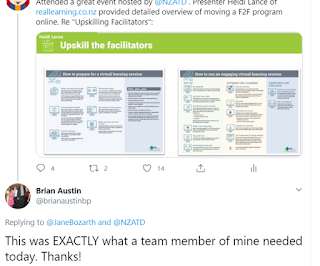Designing for Learner Success: First, Do No Harm
bozarthzone
MAY 15, 2017
It’s easy to fall into blame-the-learner mode when they don’t do well: I often hear everything from “they aren’t paying attention” and “they allow distractions like email and phones” to “no one reads anything.” But sometimes, easily fixed design issues are the culprits.





















Let's personalize your content